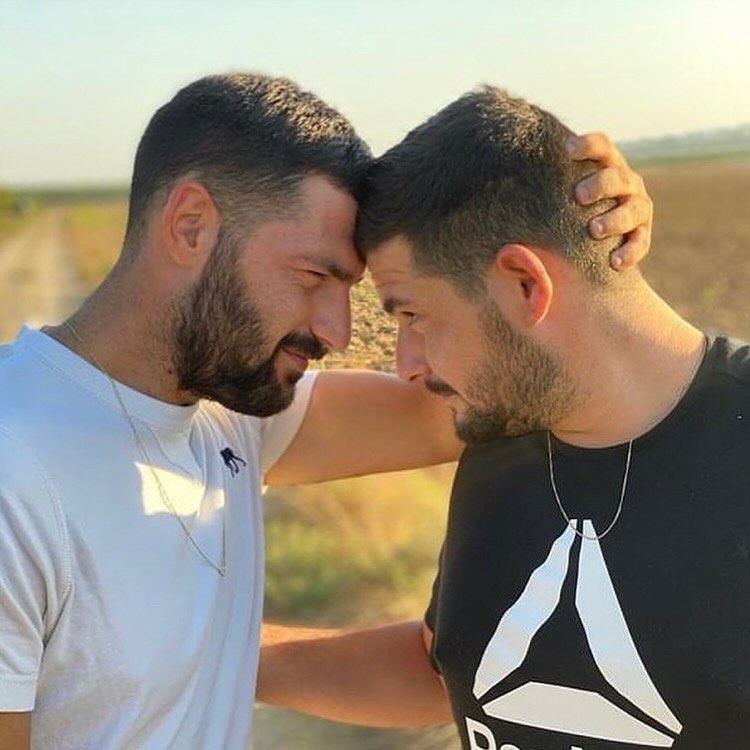Former Hamas hostage Emily Damari has revealed new harrowing details of her 15-month captivity in Gaza – including how she lost two fingers, witnessed her dog being shot, hid her sexuality and launched makeshift “lice battles” to lift fellow captives’ spirits.
In a wide-ranging interview broadcast by Israel’s Channel 12, the 28-year-old British-Israeli woman gave her most candid account yet of life underground, describing the physical violence, psychological toll and small acts of rebellion that defined her 471-day ordeal.
Damari was abducted from her home in Kibbutz Kfar Aza on 7 October 2023, after Hamas gunmen stormed the community, murdering her dog Chucha and injuring her during the attack. She was kidnapped in her own car alongside her neighbour and close friend Ziv Berman. His twin brother, Gali, was also seized.
“I texted Gali to come be with me because I was scared,” she said. “Then I heard them smashing my window. My dog was lying between us – they shot her. The bullet went through her and into my leg.”
She was also shot in the left hand. “I yelled, ‘Gali, they smashed my hand!’ and then I probably passed out,” she recalled.
After being dragged into Gaza, she was taken to a house and then transferred to Al-Shifa Hospital, where she was sedated. When she regained consciousness, she learnt that two fingers had been amputated.
Emily Damari in Islamic clothing at Al-Shifa Hospital in Gaza, following her abduction from Kibbutz Kfar Aza. (Photo: Hamas, via IDF)
“I said, ‘Cool. I’m an abductee in Gaza missing two fingers – what could be worse’?
It was the start of a long descent into captivity marked by physical deprivation, psychological strain and moments of absurdity. Damari quickly gained a reputation among both hostages and guards for her sharp wit and refusal to be broken.
She said she kept her sexuality hidden throughout, fearing the consequences if her captors discovered she was gay.
“They can’t know something like that – they consider it sick,” she said. “We once asked one of them, ‘What if your brother were gay?’ and he said, ‘I’d murder him.’”
Damari also revealed that, early in captivity, she briefly considered ending her own life.
She was given a series of nicknames by her captors: “Fuduli” (Arabic for curious), “Shajaa” (brave), “Spring”, “Tarzan”, “Mowgli” – and even “John Cena”, after the American wrestler. They grew frustrated with her constant questioning.
“I asked them everything – how they built their tunnels, how much money they make off of them – until they had enough of it.”
One incident saw her physically confront a Hamas operative who was manhandling another hostage.
“He was a former bodyguard to (slain Hamas leader) Ismail Haniyeh – a strong fella. He started pushing one of the girls and I flipped out. I spoke in Hebrew, not Arabic – ‘What are you doing?’ – and pushed him back.”
“He grabbed my arm, and I pushed his hand off. I told him, ‘If you don’t bring your commander and move us, I will yell that there are hostages here.’”
A week later, she and others were relocated. She said she never wanted to show her weakness.
If they shoot me – okay, so I’ll die. But I won’t be in captivity, thank you very much.
She recalled feeling a strange, morbid excitement when first taken into Hamas tunnels beneath Gaza.
As a “Gaza Envelope” resident, she had always wondered what those tunnels looked like. “I remember thinking, ‘Wow, I’m finally seeing them’ – just not like this.”

Bring Her Home: Emily Damari
Once underground, Damari said lice infestations became so common that she invented bizarre competitions to keep spirits up.
“We picked lice from people’s heads, put them on a card and watched which one won. I won’t say whose it was, but it totally devoured the other.”
Despite the horror, one of the most emotional moments came not from violence – but from television. Nine months into captivity, Hamas allowed the hostages to watch Israeli broadcasts. For the first time, Damari saw her mother, Mandy, on screen holding a photo of her abducted daughter.
Damari started shaking and couldn’t breathe. It was the most moving experience of her captivity – realising she was alive, she said.
She also described defying captors who demanded she wear a red jumper – the colour of Hapoel Tel Aviv, the bitter rivals of her beloved Maccabi Tel Aviv football team. In the end, she wore green.
Damari was eventually reunited with her mother on 19 January 2025, after she was freed as part of a temporary ceasefire and hostage-prisoner exchange deal. But her sense of relief was mixed with guilt.

Mandy Damari and her daughter Emily after Emily’s release on Sunday January 19 2025
Ziv and Gali Berman, kidnapped alongside her, remain in Gaza. Since her release, she has become one of the most vocal advocate for their return.

26 year old twin Brothers Ziv & Gali Berman
“Getting on the plane, eating, drinking – all of it comes with guilt. I can’t say it’s not pleasant. But still…”
She said she thinks constantly of those left behind – and of the friends she lived with underground, many of whom had little food, no daylight and no contact with the outside world.
“When I saw the girls in the tunnels, I greeted them like it was nothing. They said, ‘What’s wrong with you? You’re the first person to enter a tunnel like this.’”
Today, 58 hostages remain in Gaza. Thirty-five are confirmed dead.